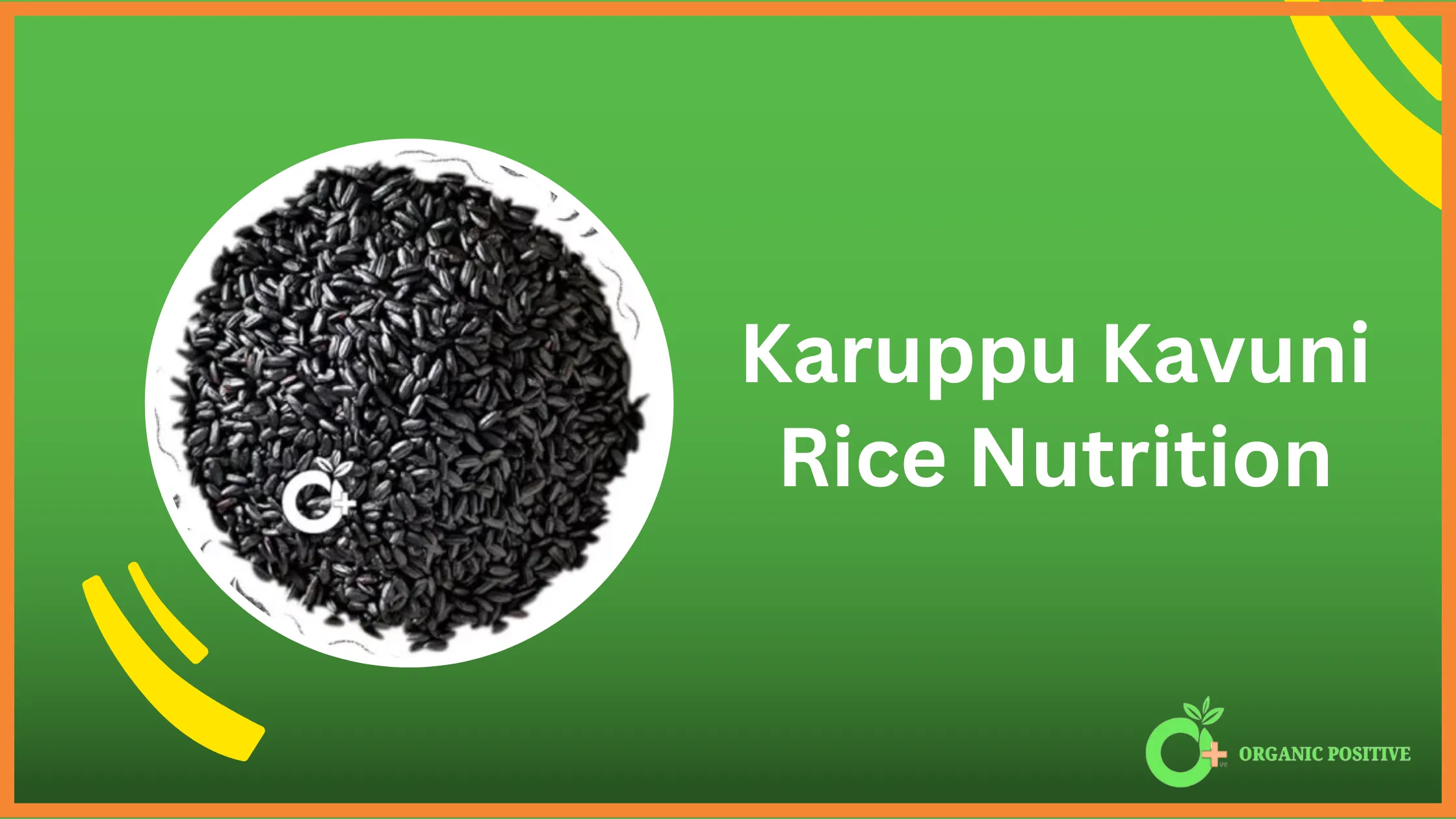karuppu kavuni rice nutrition
Karuppu Kavuni Rice also known as black rice and Forbidden black rice is an indigenous rice variety. It is popularly used in southern India and a few other countries like China, Korea, and Thailand.
Karuppu Kavuni Rice is widely popular for its exceptional health benefits, Karuppu Kavuni rice is filled with Dietary Fiber, Protein, Vitamins, iron, etc
Karuppu Kavuni Rice Nutrition table :
| Nutrient | Estimated Amount | Potential Range |
| Calories | 160-175 kcal | 150-180 kcal |
| Total Fat | 2-3 g | 1-4 g |
| Cholesterol | 0 mg | 0 mg |
| Sodium | 4-8 mg | 2-10 mg |
| Potassium | 250-300 mg | 200-350 mg |
| Total Carbohydrate | 34-38 g | 32-40 g |
| Dietary Fiber | 3-4 g | 2-5 g |
| Sugar | 0-1 g | 0-2 g |
| Protein | 5-7 g | 4-8 g |
| Iron | 0.8-1.2 mg | 0.5-1.5 mg |
| Vitamin E | 0.3-0.5 mg | 0.2-0.7 mg |
| Vitamin B2 (Riboflavin) | 0.1-0.2 mg | 0.08-0.25 mg |
| Vitamin B3 (Niacin) | 1.3-1.5 mg | 1.0-1.8 mg |
Karuppu Kavuni rice Benefits for Organs :
Karuppu Kavuni rice is filled with numerous health benefits, they provide a bunch of benefits to the various organs of our body
Here is the list of Health benefits of Karuppu Kavuni Rice
Heart Health: The antioxidants in Karuppu Kavuni rice can help in reducing cholesterol levels and maintaining healthy blood vessels.
Diabetes Management: Its high fiber content helps in the slow release of glucose into the bloodstream, which can be beneficial for people with diabetes by helping to control blood sugar levels.
Digestive Health: The dietary fiber promotes digestive health and prevents constipation.
Weight Management: The fiber content also aids in feeling full longer, which can help in weight management efforts.
Conclusion:
Including Karuppu Kavuni rice in your diet can be a nutritious choice, offering a variety of health benefits alongside its distinctive taste and texture. As with any food, it’s best consumed as part of a balanced diet.
Having said that, for any food moderation is the key, so if you’re gonna consume Karuppu Kavuni rice regularly it is advised to consult your medical professional.
Anti-inflammatory Properties: The anthocyanins have anti-inflammatory properties, which can reduce the risk of chronic diseases such as heart disease, diabetes, and certain cancers.








Leave a Reply